
When it comes to iconic beer brands, Coors often sits at the forefront of many conversations. Yet, a question that seems to pique curiosity time and time again is whether Coors is under the umbrella of the global giant Anheuser-Busch. The simple answer is no, but the story is far more intricate than a single word could convey.
The Coors brand, known for its rich history and distinct Rocky Mountain origins, is actually part of the Molson Coors Beverage Company. This fact alone opens the door to exploring the dynamic landscape of beer brands and their ownership. While Anheuser-Busch and Molson Coors are indeed titans of the beer industry, each has carved its unique path in the brewing world.
For those attending beer festivals, understanding these distinctions not only adds depth to the experience but also enriches the appreciation of the beverages on offer. Let's delve into how Coors maintains its distinct identity amidst industry giants and continues to leave its mark on beer festivals across the globe.
- Unraveling Coors' Ownership
- Anheuser-Busch: A Global Brewing Titan
- Coors' Influence on Beer Festivals
- Fun Facts and Beer Tips
Unraveling Coors' Ownership
The story of Coors ownership is a fascinating narrative of heritage, innovation, and strategic shifts in the ever-evolving brewing industry. Known for the legendary taste of its Rocky Mountain Lager, Coors initially began as a family business in the late 19th century. Founded by German immigrants Adolph Coors and Jacob Schueler in 1873 in Golden, Colorado, it started as a small brewery with a dream. Since then, it has grown into a recognizable global brand that resonates with beer enthusiasts around the world.
Fast forward to the 21st century, and Coors finds itself under the umbrella of the Molson Coors Beverage Company. This birth of today's entity was itself an intriguing chapter; a merger between two great beer families — Coors from the U.S. and Molson from Canada — in 2005. This merger highlighted not just a unification of brands, but also a strategic alignment against the industry's big leagues like Anheuser-Busch. The transaction provided a platform for sharing resources, markets, and certainly tapping into each other's vast heritage.
Meanwhile, rumors often bubble up like fresh beer foam about Coors being associated with Anheuser-Busch, largely due to the sheer scale of Anheuser-Busch's operations and its extensive portfolio of brands. However, it's crucial to dispel these myths and recognize the distinct paths these companies have taken. Anheuser-Busch, with its own rich tapestry of mergers, acquisitions, and global presence, operates parallel to Coors, neither owning nor controlling it. Coors, under Molson Coors, prides itself on maintaining its unique identity — a blend of traditional brewing techniques coupled with contemporary practices.
Intriguingly, as the beer industry faced a series of challenging market dynamics, Molson Coors has been responsive. Beyond scaling production and expanding market reach, it committed to sustainability, notably pledging significant reductions in brewing emissions and water consumption. This strategy, in today's environmentally-conscious market, fortifies Coors as a modern brand carrying an eco-friendly banner whilst still preserving its fabled heritage. Notably, in 2022, Molson Coors set benchmarks in corporate sustainability disclosures, indicating its lead in industry-responsive actions.
The importance of such strategic agility can't be overstated. Imagine, for instance, as beer festivals worldwide see attendees pouring over brands and options, Coors stands out with not just heritage, but modern appeal. Enthusiasts often note this balance; appreciating Coors for its past while enjoying its contemporary relevance. A quote resonant with industry watchers, reported by BrewNews in April 2022, said,
"In the dance of old meets new, Coors performs a splendid choreography that keeps beer lovers coming back for more."Such sentiments underline how vital these stories of ownership and direction are, coloring the Coors experience beautifully.

Anheuser-Busch: A Global Brewing Titan
Anheuser-Busch, with its iconic brands like Budweiser and Stella Artois, stands tall as a behemoth in the world of brewing. Founded in the mid-19th century, this company has grown from a local American brewery to a global powerhouse that commands a significant share of the world's beer market. Its journey began in St. Louis, Missouri, where the Anheuser and Busch families joined forces to create a legacy that has endured economic downturns, changing consumer preferences, and fierce competition. Today, Anheuser-Busch operates under the AB InBev umbrella, a move that solidified its position not just as a national leader but as a truly international force.
With operations in dozens of countries across various continents, Anheuser-Busch benefits from a presence in every significant beer market on the planet. Its strategic acquisitions and diversification of its beer portfolio have allowed it to offer a product for every palate, whether one seeks the crispness of a lager or the full-bodied richness of a stout. The company is not just reliant on its flagship brands; its keen eye for market trends has led to smart investments in craft brewers and low-alcohol beverage solutions, keeping pace with modern consumer consciousness regarding health and lifestyle choices. As quoted by Carlos Brito, former CEO of AB InBev, "Our dream is to be the Best Beer Company Bringing People Together For a Better World."
In understanding how Anheuser-Busch reaches beer lovers worldwide, one must look at its marketing prowess and commitment to sustainability. Its advertisements have become a staple in cultural lexicon, with Super Bowl commercials elevating brand awareness every year. However, it isn't just witty marketing that has earned Anheuser-Busch its fame. The company has taken bold steps towards reducing its environmental footprint, investing in clean energy and sustainable packaging. Its commitment to building a greener planet is evident in its brewing processes, which increasingly rely on renewable resources and environmentally friendly practices. This aspect of the business cannot be understated, especially as consumers become more ethically conscious of their purchases.
Innovative Approaches and Market Influence
Innovation sits at the heart of Anheuser-Busch's strategy, with initiatives that have genuinely reshaped the industry standards. The brewer's research and development arm continuously work on novel techniques to improve quality and efficiency. Projects focusing on the agricultural side of brewing—like developing drought-resistant barley—mirror its strategy of holistic improvement from grain to glass. Such dedication ensures that the brand remains at the forefront of the brewing industry, both in terms of product quality and corporate responsibility. To further illustrate this, it's essential to consider the figures around the company. As per recent estimates, Anheuser-Busch controls over a quarter of the global beer market, and its annual production capacity exceeds 500 million hectoliters of beer. These numbers underscore why the company is often the benchmark against which other brewers measure themselves.
Yet, as vast and influential as Anheuser-Busch is, each market requires a nuanced approach, and this is where its adaptability shines. It knows when to flex its corporate muscle and when to respect local brewing traditions. This balance between global vision and local sensitivity is not just prudent—it is a cornerstone of its immense success. In the ever-evolving beer landscape, from the Oro Valley in southern Arizona to the scenic Scottish Highlands, Anheuser-Busch continues to shape the tastes and trends within the industry, embodying both history and the future in a single pint glass.

Coors' Influence on Beer Festivals
Beer festivals are a vibrant tapestry of flavors and experiences, and the presence of Coors at these events is as noteworthy as it is inevitable. The brand, beloved for its smooth taste and Rocky Mountain allure, has become a staple at gatherings that celebrate the diverse craft of brewing. As one of the cornerstones in the beer industry, Coors brings with it not only its flagship brews like Coors Light and Coors Banquet but also a legacy of consistency and quality that spans generations. These festivals, such as the Great American Beer Festival held annually in Denver, are an incredible opportunity for Coors to showcase its range while blending tradition with innovation. Attendees, often overwhelmed by the expanse of choices, find comfort in the familiarity of Coors, a brand that resonates across various demographics and palates.
The participation of such an established player in these events has a ripple effect. For one, it elevates the profile of the festival itself, drawing in crowds who might not typically venture into the realm of craft beers. This broadens the spectrum of visitors, allowing novice and seasoned beer lovers alike to come together under one roof, united by a shared fondness for well-brewed beer. Interestingly, according to a report from the Brewers Association, beer festivals featuring well-known brands like Coors tend to see an increase in attendance by around 15%, an indicator of the magnetic pull these brands have. Coors also invests significantly in ensuring their booths are not just stops for tasting but interactive experiences where consumers can learn about their brewing process and history.
"The impact of major brands like Coors on beer festivals cannot be overstated," noted John Paradiso, a writer from Hop Culture. "They bring not only their beer but their commitment to the culture of beer appreciation, which elevates the entire experience for everyone involved."
Another aspect of Coors' influence on these festivals is its support for the craft community. While Coors itself is a massive player, it recognizes the importance of supporting smaller, independent brewers. There's often a collaborative spirit inspired by Coors' presence, where craft brewers feel encouraged to innovate and differentiate themselves while adhering to the quality standards that Coors exemplifies. The mutual respect between these entities fosters an environment of learning and growth, ensuring that each festival is both a celebration and a learning ground for brewers and attendees alike. Over time, Coors’ continued participation in these events not only cements its role as a major player but also as a guardian of beer culture, one that appreciates the diversity and creativity of the brewing industry at large.
Moreover, Coors' longstanding commitment to environmental sustainability also finds a platform at these festivals, where they can engage with a socially conscious audience. Their initiatives in water conservation and sustainable packaging are highlighted at such venues, where visitors are increasingly mindful of the environmental impact of their consumption choices. This aspect of Coors’ business practice aligns well with the ethos of modern beer festivals which often promote sustainability in brewing. During tasting events, Coors sometimes presents informative sessions where attendees learn about the brand’s sustainability efforts, ranging from their innovative recycling programs to the careful sourcing of ingredients.

Fun Facts and Beer Tips
Beer lovers often find themselves drawn to the enchanting world of Coors, a cornerstone in American brewing history. One of the most intriguing aspects of Coors is its origin in the Rocky Mountain region, which isn't just a catchy slogan but also refers to the actual source of its brewing water. This fresh mountain water has been a critical part of the beer’s unique flavor profile since the 1870s, contributing to the brand's enduring popularity. Coors Light, for instance, is often called the 'Silver Bullet' due to its sleek, silver-colored cans, adopted in the 1970s as a modern take on beer packaging. The branding decision marked an era of transformation in how beers were marketed, catering to the young and vibrant audiences of the time.
A fun little-known fact is that Coors was among the pioneers in using recyclable cans, making it a kind of ‘green’ innovation long before it became a mainstream concern. Of course, beer festival goers might be more interested in tips on pairing their favorite Coors selections. Did you know that Coors pairs exceptionally well with spicy foods? The delicate fizz and mild flavor profile enhance spicy dishes, creating a balanced tasting experience. For those seeking more knowledge, there's a quote from the historic Coors family:
"Our beer is as clean and pure as the snow in our mountains."This dedication to purity and quality continues to shine through to this day.
Now, if you’re planning to attend a beer festival, it might help to have a few beer-tasting tips up your sleeve. Begin by exploring lighter beers first, like Coors Light, before moving to stronger flavors. This allows your palate to slowly adjust and appreciate the subtleties in each brew. Always sniff your beer before drinking it; aroma plays a significant role in the overall flavor experience. As you become more aware of different aromas, don't be surprised to detect the faint whiff of bananas in brews with high levels of esters, a product of yeast fermentation. If you find yourself curious about the broader world of brewing, attending brewery tours at festivals can offer fascinating insights into the process, as well as an opportunity to taste special edition beers that might not reach mainstream distribution.
In terms of stats, according to recent figures, the global beer market is projected to grow from $623 billion in 2023 to $738 billion by 2028, suggesting a growing appetite for varied brews across the world. This can only mean more room for companies like Coors to innovate and reach new audiences worldwide. Whether you're new to beer tasting or a seasoned aficionado, there’s always something fresh and enticing waiting to be discovered through the hops and barley of a quality brew. Remember, every sip of Coors is a sip of history, bridging decades of crafting excellence with the palate of today’s adventurous drinker.
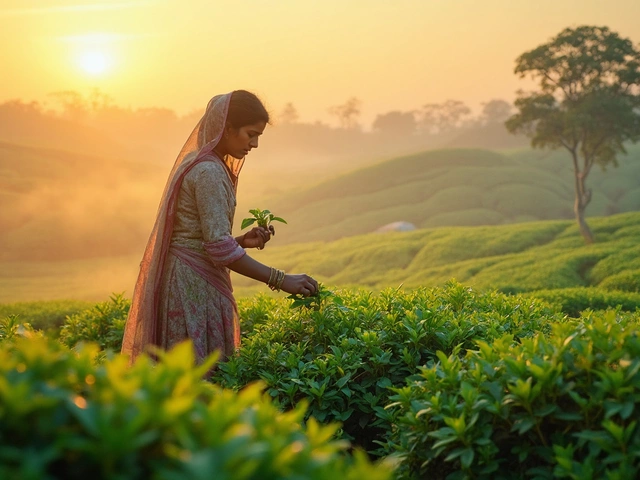
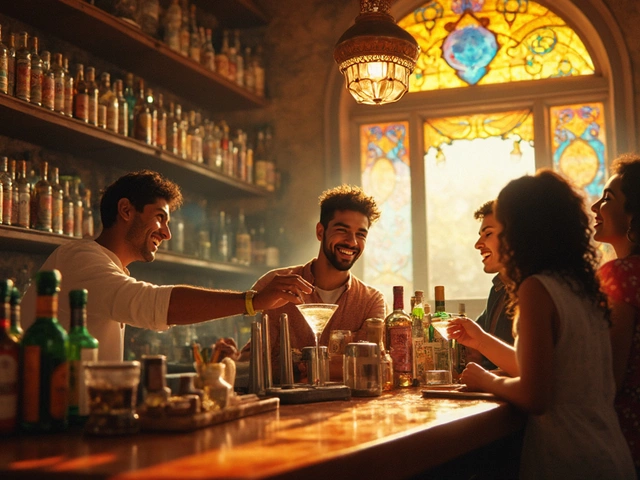
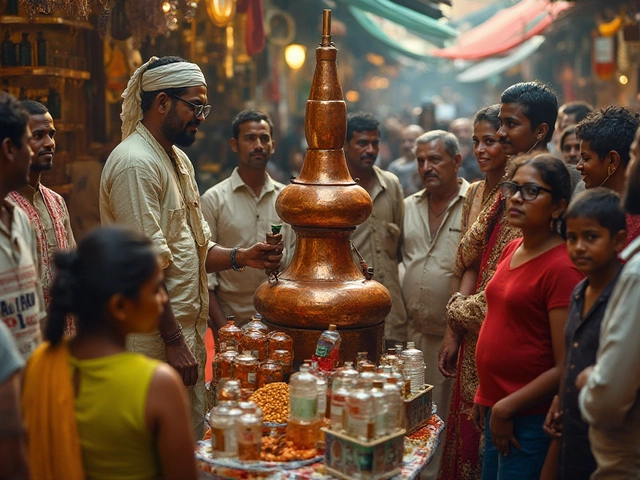
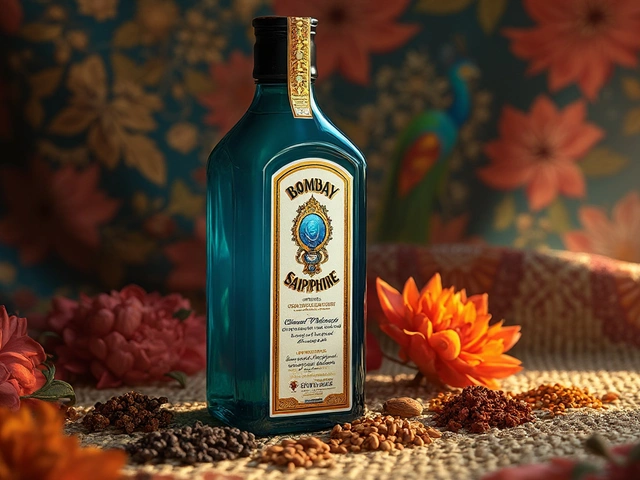
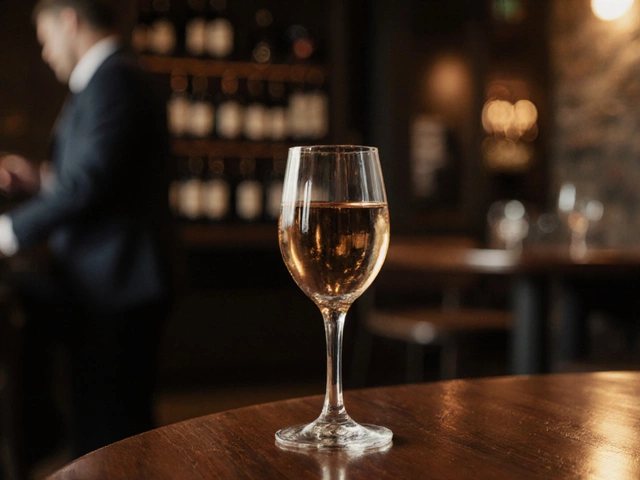
Categories